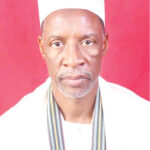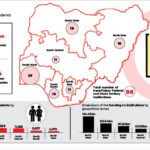
Globalization is shrinking the linguistic map of the world at rates that alarm some linguists. In this October 13, 2017 originally article titled “The People Saving ‘Lost’ Words,” BBC’s Fiona Macdonald writes about the global effort to save endangered languages through the preservation of their written and oral poetries. Enjoy:
“They fly to Port Moresby in Papua New Guinea and there they take a bus for three days and then they hike over a mountain and then they take a canoe and then they get to this little bay with 300 people.” It’s the stuff of Indiana Jones – but rather than seeking out a treasure hidden in the jungle, the aim of this journey is to collect voices. And the people venturing into some of the world’s most remote places aren’t hardened adventurers carrying whips. Instead, they are “PhD students of 25 with a digital camera, a digital audio recorder and solar panels”, according to Mandana Seyfeddinipur, head of the Endangered Languages Archive at London’s SOAS.
But what the roving linguists find is arguably up there with a lost Incan temple. “They live with the communities for months at a time, and develop social relationships, and talk to them and record them, and then they come back and they give me this SD card,” Seyfeddinipur tells BBC Culture. “I’m such a wimp, I get so teary when I first hold it, because possibly the only record that we have of this language is in this tiny SD card.”
Seyfeddinipur has been working with London’s Southbank Centre’s National Poetry Library to preserve words that would otherwise be lost. “The doomsday linguistic view is that by the end of this century, in the next 85 years, we will lose 3500 languages – half of the 7000 languages that are spoken today will fall silent,” she says. “We’re losing languages at the same speed at which the world lost its dinosaurs at the fifth mass extinction.” Although it’s a natural process – “people move somewhere, they give up their language and adapt another language, it’s the beauty of language that it’s a social tool,” she argues – it’s now happening at an unprecedented rate. “Because of globalisation and urbanisation and climate change, this process has sped up beyond what we’ve ever seen.”
Going for a song
The newly launched Endangered Poetry Project aims to tackle that loss at another level. “Languages are dying out at an astonishing rate: a language is being lost every two weeks,” says the National Poetry Librarian Chris McCabe. “And each of those languages has a poetic tradition of some sort, whether it’s written or aural – within that poetry will be all the different approaches and styles of writing poetry, as well as everything that poetry can tell us about those people: what they’re interested in; what their concerns are.”
The project has issued a call-out to members of the public, asking for poems written in an endangered or vulnerable language. “In the first week, we’ve had over a dozen submissions in about 10 languages,” says McCabe. “That includes poems in Breton, and poems in a dialect of Breton called Vannes. We’ve had a poem in Alsatian, and the Sardinian dialect Logudorese. We’re interested in these variations in language in different places as well, which can often be markedly different from the established language.”
The poems reveal much about their speakers. “You get a focus on place – in poems we’ve received from Sardinia, for example, there’s a focus on the mountain range there,” says McCabe. “It shows you where people felt drawn to for inspiration in the landscape. Also, the style of a lot of Gaelic poems is very lyrical, and often uses repetition, a lot like a song. In that poetic tradition, you see how the division between poetry and music is quite slight – they often cross over between one and the other. The poetry tells us a lot about what kind of artistic experience people like, as well as what’s important in their geography.”
These poems can also tell us about ourselves, according to Seyfeddinipur. “If you think about the metaphors they use, it links into a different worldview. I’m Iranian and I grew up in Germany – when I came to the US, it was very strange to me to learn that the colour blue stands for sadness. I was like ‘what? To me, blue is hope – the sea and the sky.’ That colour idea was completely alien to me,” she says. “I realised that blue signified depression – I didn’t have this association with that colour. It opens up worlds, it opens up perspectives.”
Found in translation
She believes there’s an urgency to preserving this particular art form. “Poetry is another level of complexity – communities creating a higher level of meaning about the beauty of the world – and it is disappearing. The rituals, the stories which make up cultural heritage production, are the first things that disappear because that’s the first thing the kids are not interested in,” she says. “My dad, who’s Persian, can sit down and recite Hafez for hours. I can’t do that. I’m not one of those who say we have to recite Hafez’s poetry for hours, but at least let us know that we had it.”
The Southbank Centre has commissioned four poets to create works in their own endangered languages. One of them, Joy Harjo, is a member of the Mvskoke (Creek) Nation. “I realised as I looked for the right words and began to work the poem in a Mvskoke sense I left an English language state of mind,” Harjo tells BBC Culture. But it wasn’t easy. “I lost patience as I wrote the first stanza and zoomed forward in English, then doubled back.” She worked with a translator who has a “lyrical sense” of Mvskoke. “I am not yet a poet in my tribal language,” says Harjo. “I am aware of so much that I don’t know, but am in wonder at the glimpses of deeper cultural knowledge.”
Widening the languages we understand means we don’t harbour lazy assumptions. “All our linguistic science – all our knowledge about what we think is universal or invariable – comes from a handful of languages,” says Seyfeddinipur. “When we say ‘every language has this’, how many languages have you looked at when you say that – 20?”
Taking a stanza
There’s also a political dimension to preserving vulnerable languages. “We’re looking at the Unesco list of endangered languages but we’re also interested in languages that are endangered for reasons that might not be so obvious,” says McCabe. “It could be political turmoil, it could be because they’re a sidelined group, or a group that’s being forced to flee a place – the language might not be highlighted as under threat in terms of future generations speaking it, but it’s a political thing in their culture to be speaking those languages.”
The commissioned writers include Iraqi poet Nineb Lamassu, who has written in Assyrian, a language not officially recognised in Iraq; and Ugandan poet Nick Makoha, who chose his mother tongue, Luganda, a language he lost when he was forced to flee Idi Amin’s dictatorship as a boy. For Harjo, the disappearance of a language can itself be a political act. “Our memories, meanings of what it means to be Mvskoke, place and history are all embedded in the words and phrasing of a language,” she says. “At Indian boarding school in the late 60s, even though it was an arts school and quite progressive, we were punished for speaking our tribal languages.”
In offering an alternative to official culture, speaking a language can be a form of resistance. “It is ironic and from ignorance that it is considered ‘un-American’ by many American citizens to speak any language other than English, when English is not indigenous to the Americas, [but rather] an imposed language and a useful trade language,” says Harjo. “It can even be dangerous to speak a different language than English. You can be singled out for discrimination. Children can be targeted. To insist on your own tribal language is an act of sovereignty, of love.”
 Join Daily Trust WhatsApp Community For Quick Access To News and Happenings Around You.
Join Daily Trust WhatsApp Community For Quick Access To News and Happenings Around You.


